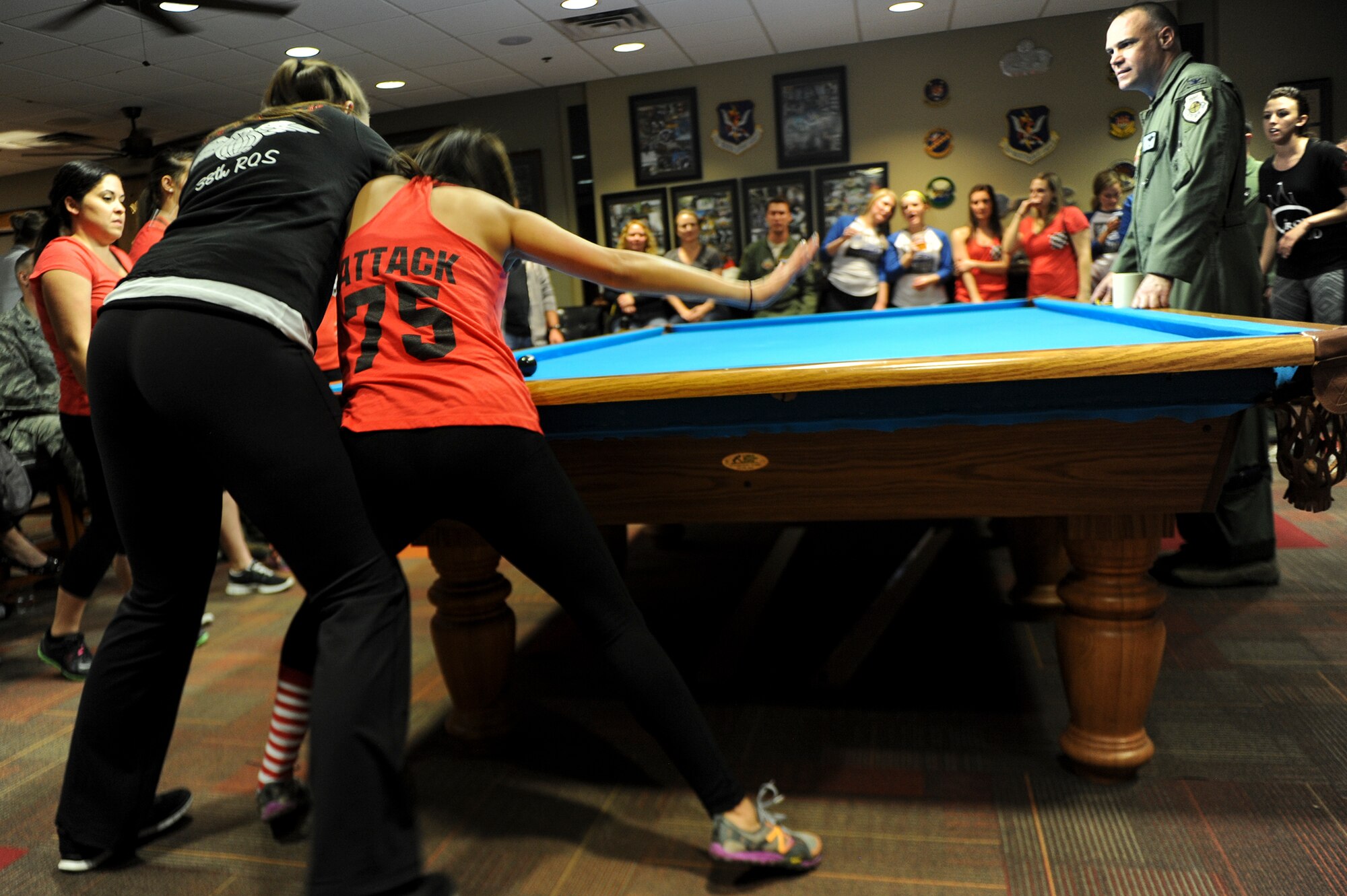원글
A violation of a particular game's rules for which a set penalty is imposed. In many pool games the penalty for a foul is ball-in-hand anywhere on the table for the opponent. In straight pool, a third successive foul results in a loss of 16 points (15 plus one for the foul). Also bar rules, pub pool, tavern pool. Also bar box, pub table, tavern table, coin-operated table, coin-op table. In one-pocket, in which a set number of balls must be made in a specific pocket, upon a foul the player must return a ball to the table. The following is a glossary of traditional English-language terms used in the three overarching cue sports disciplines: carom billiards referring to the various carom games played on a billiard table without pockets; pool, which denotes a host of games played on a table with six pockets; and snooker, played on a large pocket table, and which has a sport culture unto itself distinct from pool.
1. In snooker, any of the object balls that are not reds. Erring too much in this direction is "missing on the professional side of the pocket." It is so called because experienced players understand that on a thin cut, overcutting the object ball to a corner pocket will far more often leave the object ball in an unfavorable position, i.e. along the short rail for the incoming opponent than will an undercut, which often leaves the object ball sitting in front of or nearby the pocket it had been intended for on a miss. Shots are not called. These extra turns, called "bisques" are effective in levelling the odds of winning. The labels "British" and "UK" as applied to entries in this glossary refer to terms originating in the UK and also used in countries that were fairly recently part of the British Empire and/or are part of the Commonwealth of Nations, as opposed to US (and, often, Canadian) terminology. However, due to the predominance of US-originating terminology in most internationally competitive pool (as opposed to snooker), US terms are also common in the pool context in other countries in which English is at least a minority language, and US (and borrowed French) terms predominate in carom billiards.
Not to be confused with carom billiards. In carom billiards games, when all the balls are kept near each other and a cushion so that with very soft shots the balls can be "nursed" down a rail, allowing multiple successful shots that effectively replicate the same ball setup so that the nurse shots can be continued almost indefinitely, unless a limit is imposed by the rules. Archived from the original on January 28, 2007. Provides an animated illustration of precisely how the chuck nurse works. Also nurse shot, nursery shot, nursery cannon. After a successful croquet stroke, the player has a single further shot, known as the "continuation". To "aim for the profession side of the pocket" is to slightly overcut a difficult corner-pocket cut shot, to cheat the pocket, rather than undercutting, especially in nine-ball. See the Nine-ball § Derived games section for the game. It is the most-played form of competition pool in the world, though not for professionals, among whom nine-ball dominates. Pub pool usually consists of minor local variations on one of these two standardised rule sets. The two names reflect slightly variant rulesets, which differ primarily in handling of faults (fouls).
In UK eight-ball this would normally give the opponent the option of one of two plays: (1) ball-in-hand with two shots; (2) being allowed to contact, or even pot, a ball other than one from their set from the snookered position (although the black may not be potted), with the loss of the first shot. In some games such as straight pool, a foul results in a loss of one or more points. In addition, some variations of the game allow the player to pot one of the opposition's balls, on the first visit only, without the loss of a "free shot". The American-rules version of croquet is the dominant version of the game in the United States and is also widely played in Canada. Williams, Chris. "Croquet Grading System". Martin, Clive; Williams, Simon (2004). A Brief History of Croquet in Ireland. 2004). The Eight Ball Bible: A Guide to Bar Table Play (illustrated ed.). In 1868, the first croquet all-comers meet was held at Moreton-in-Marsh, Gloucestershire, and in the same year, the All England Croquet Club was formed at Wimbledon, London.
If you beloved this article and you would like to get more info about What is a billiards club nicely visit the web-site.

